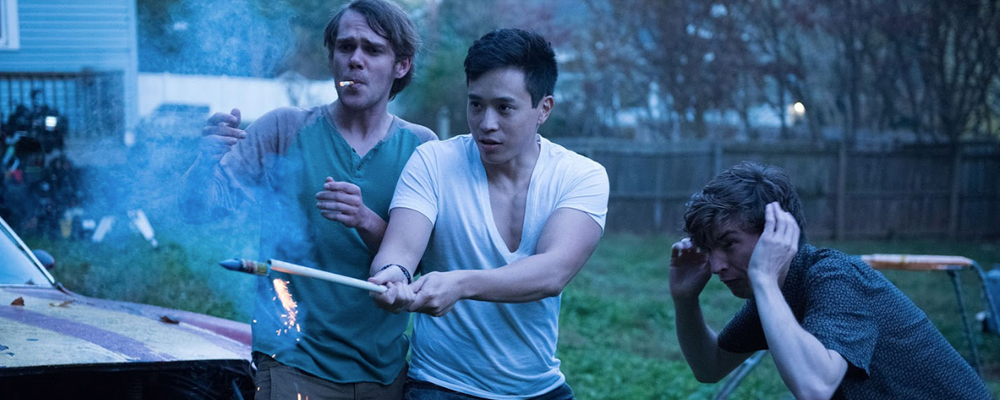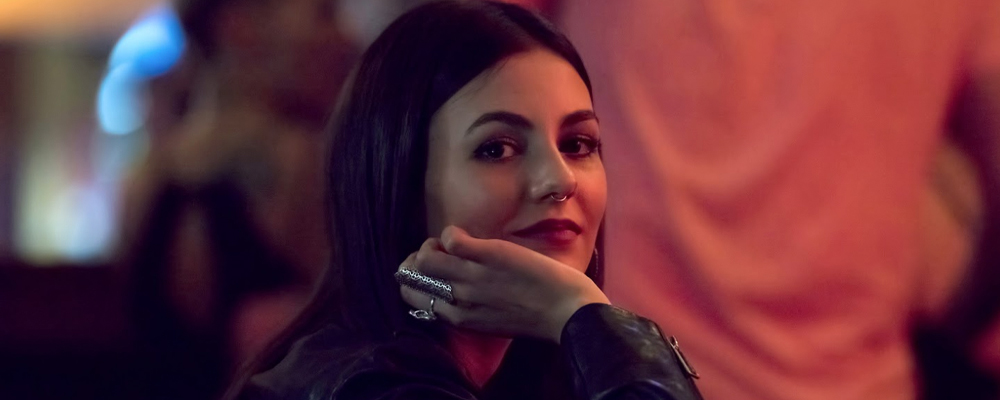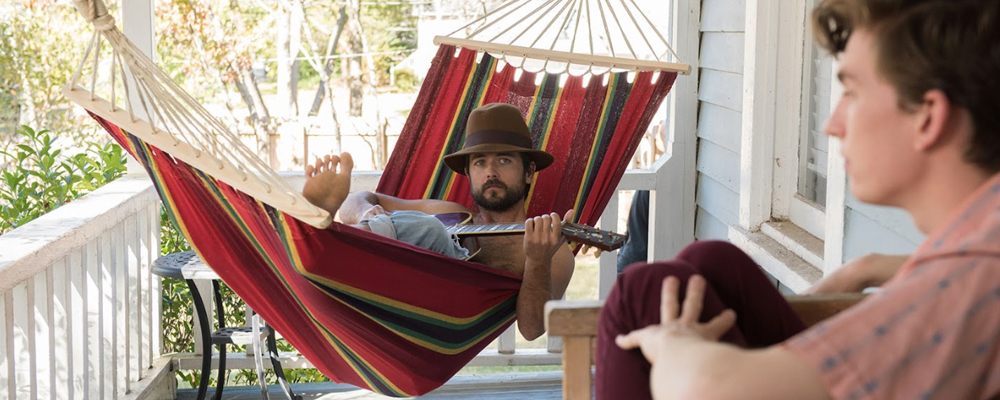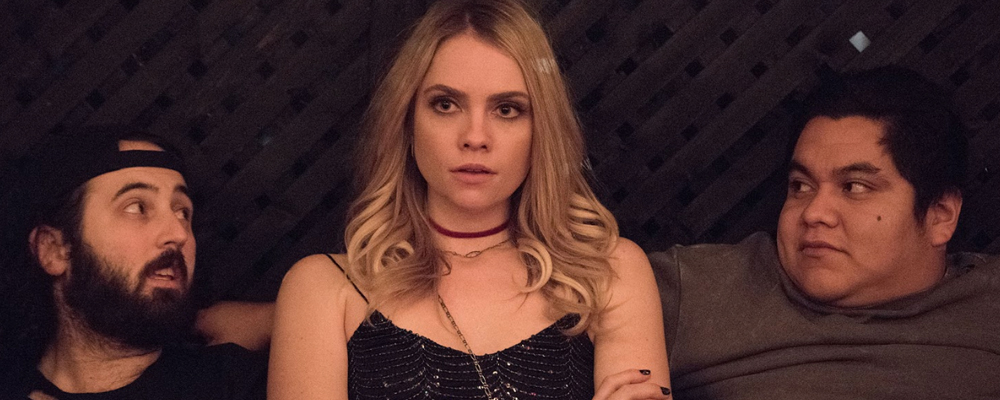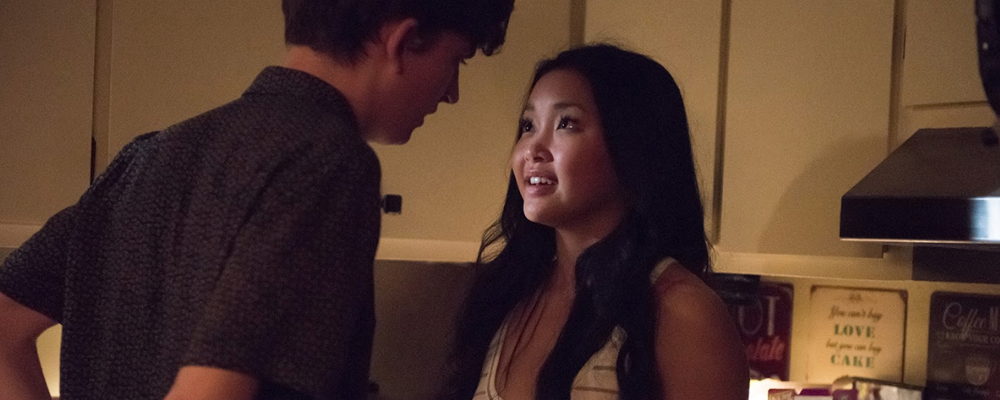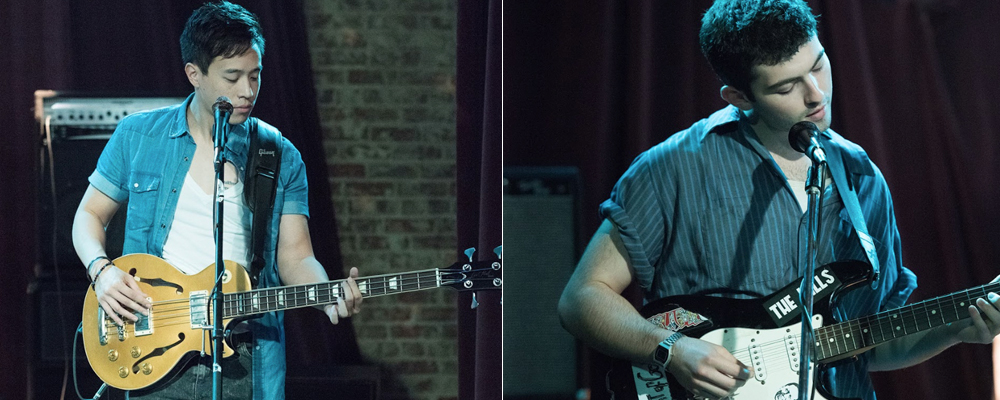Joseph Cross Fails to Capture the Magic of a ‘Summer Night’
Michael Fairbanks
Joseph Cross’ “Summer Night” is a cinematic dramatization of a half-remembered drunken yarn spun by a frat brother seconds away from passing out. He wants to talk about some crazy concert he and his burnout buddies played in back in the day, but can’t decide how he wants to tell the story. As such, he alternates between wistful nostalgia and numbingly one-dimensional impressions of the people he thought were being total bummers. It’s a film that has a lot to remember but nothing to say.
The summer we find ourselves in is a transitional one for the young folks of this neighborhood. High school is long over but only a few people have left it behind. Some are anxious to break into the next phase in their lives, others are unwilling to let go of the idea of having the same guys over for beers every night. The growing pains echo through each building we enter, each one holding a precious memory of a great night that is long gone.
The story hovers around a local barroom show and the people who comprise the various acts and audience members. We primarily follow Jameson (Ellar Coltrane of “Boyhood”), a sulky young man who is starting to grow restless with the aimlessness of his small town. Some folks, like the free-wheeling Andy (Justin Chatwin), are totally fine being stuck in the rut. Others, like Seth (Ian Nelson), are at a more demanding crossroads, his being the news of his girlfriend Mel’s (Analeigh Tipton) pregnancy. From there, a motley crew of characters weave their way in and out as the night goes on, but very few of them have enough going on to mention.
Cross takes clear influence from the early work of Richard Linklater, practically printing the “Dazed and Confused,” script template and writing his own lines in crayon. He wants us to feel like we live in this small town right alongside these aimless youngins who have their whole lives ahead of them but absolutely no sense of direction. However, the screenplay by Cross and Jordan Jolliff lacks any of Linklater’s trademark naturalism and the characters are put into typical and deeply antiquated boxes. If they’re men, they’re either the life of the party or tortured by the crushing responsibility of treating the women in their lives like human beings. Said women are presented as nags, constantly pulling our fun adventurous boys away from their long night of drinking and rocking out.
The cast leaves much to be desired, many of them castaways from careers that never quite took off. Coltrane, who should’ve been able to spot a Linklater knockoff a mile away, does very little to pull us in. He’s cold and disengaged but not in the way Cross intends him to be. He just seems disinterested in being on screen, letting each scene pass him by without making any particular choices in them. Chatwin is cartoonishly over the top, while Tipton and Lana Condor grit their teeth through underwritten roles. However, Victoria Justice does briefly liven things up as Jameson’s perspective girlfriend Harmony. While she’s saddled with some of the film’s worst “men writing women” dialogue, she delivers it with the natural charisma needed to provide herself and Coltrane with enough screen presence to make their scenes bearable.
There’s also nothing particularly striking about this setting that is clearly intended to be a character in itself. In fact, it doesn’t feel like a living, breathing town at all. It’s just a series of sets. One can practically make out the caution tape that divides the corners of pavement and grass Cross was allowed to film on. The lighting is often soft enough to make a soap opera blush, giving each scene a distinctly artificial look that detracts majorly from the grounded tone Cross is going for. Even in the bustling Alamo bar that is boasted about throughout the entire first act, nobody in the background seems particularly excited to be there. It is just any other bar with a crappy band and a bit of drama courtesy of the most attractive people in the room.
“Summer Night” feels as though it was meant to mean a lot. While they are few and far between, there are moments that have a certain wistful charm. Briefly, it’ll feel like gazing at a remarkably unremarkable moment in time. But then, somebody will say something that feels utterly manufactured and that whole groove gets thrown off. There are moments here that would be too cliched for a sketch making fun of coming of age films. It’s neither sweet enough to make us care, nor cutting enough to make us laugh. When it eventually goes fully limp, it completely loses sight of what it was trying to say and eventually ends on an inconclusive whimper. The frat boy finally drifts into dreamland.
“Summer Night” releases July 12 in select theaters and VOD.

